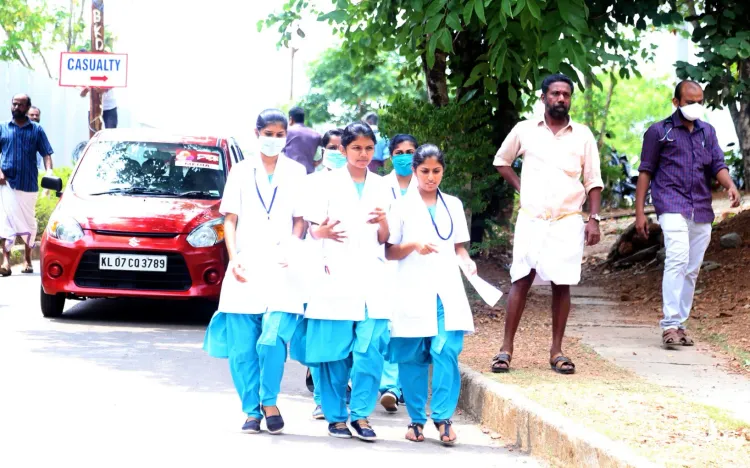Is Tamil Nadu Prepared for the Nipah Virus Threat from Kerala?

Synopsis
Key Takeaways
- Medical teams are on high alert in Tamil Nadu.
- No cases of Nipah virus have been reported in the state.
- Symptoms to watch for include fever and headaches.
- Residents are urged to maintain hygiene and safety protocols.
- Stay informed through official channels to avoid misinformation.
Chennai, July 12 (NationPress) In light of the recent Nipah virus infections reported in the districts of Palakkad and Malappuram in Kerala, the Tamil Nadu Directorate of Public Health and Preventive Medicine has reassured the public that there is no need for alarm. Medical teams are currently on high alert to monitor and address any potential cases swiftly.
In a statement released on Saturday, the department confirmed that no cases of Nipah virus have been identified in Tamil Nadu thus far, and all vital precautionary measures are being enforced to avert any possible outbreak.
Medical teams have been strategically stationed in districts adjacent to the Kerala border and are prepared to respond quickly to any suspected cases.
The Directorate has advised residents to stay calm yet vigilant, emphasizing the importance of adhering to basic hygiene and safety protocols.
The public is encouraged to be aware of the symptoms linked to the Nipah virus, which may include fever, headache, vomiting, confusion, difficulty in breathing, seizures, and even fainting.
Individuals experiencing these symptoms—especially those who have recently visited affected areas in Kerala or come into contact with an infected individual—should seek prompt medical assistance at the nearest government hospital.
To minimize the risk of transmission, residents are also urged to refrain from consuming unwashed or fallen fruits, ensure thorough washing of fruits prior to consumption, and practice proper hand hygiene by frequently washing hands with soap and water.
Health officers throughout Tamil Nadu have been directed to closely observe the situation and guarantee that all preventive measures are effectively implemented in their respective regions.
The Nipah virus is classified as a zoonotic disease, which means it can be transmitted from animals to humans. Fruit bats are recognized as the primary carriers of the virus, with human infections typically occurring through contact with bat-contaminated fruits or close interaction with infected individuals or animals, such as pigs.
The Tamil Nadu health department reiterated its pledge to ensure public safety and will continue to monitor the developments in Kerala closely.
Citizens are advised against spreading rumors and are encouraged to rely solely on official announcements for accurate information.










